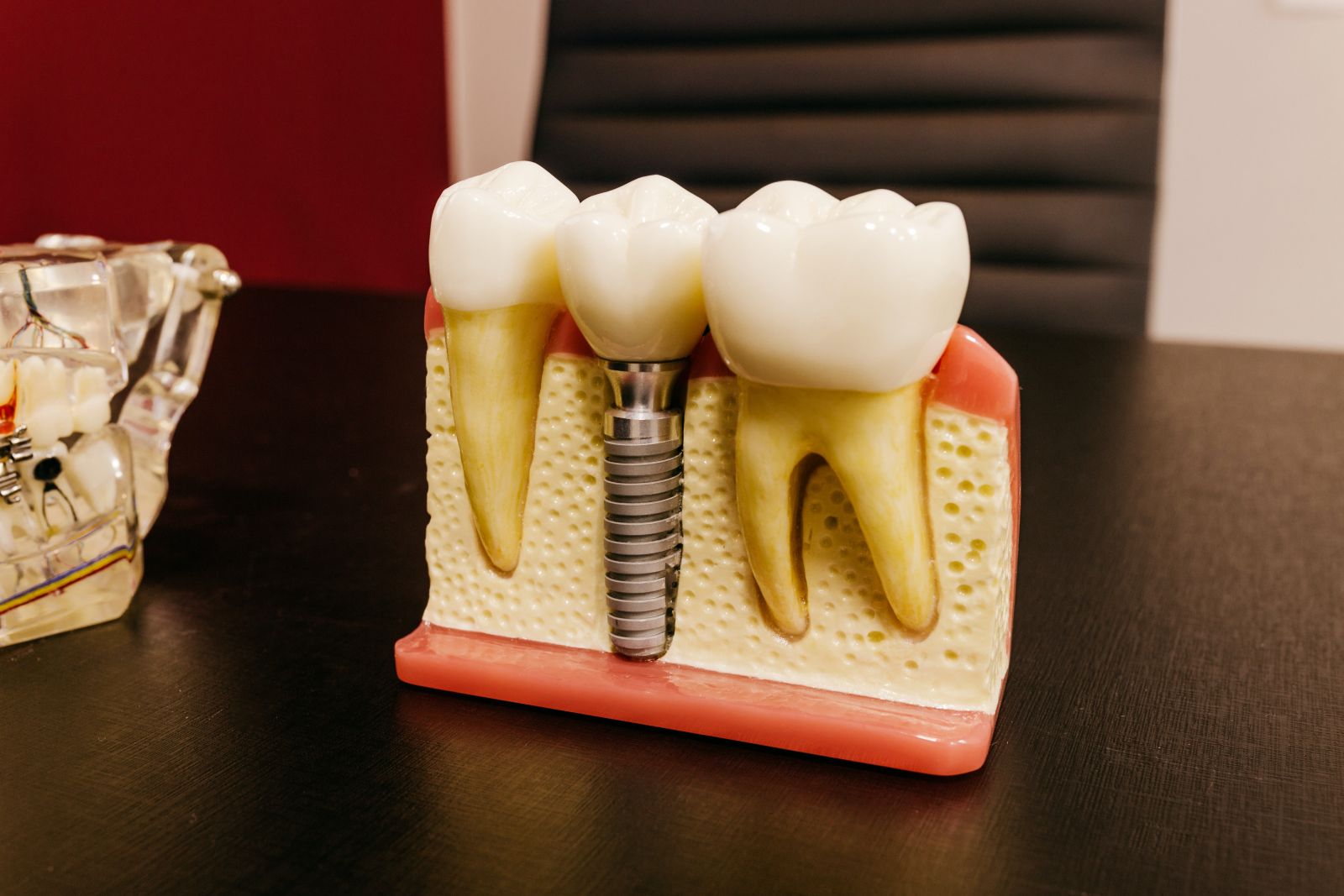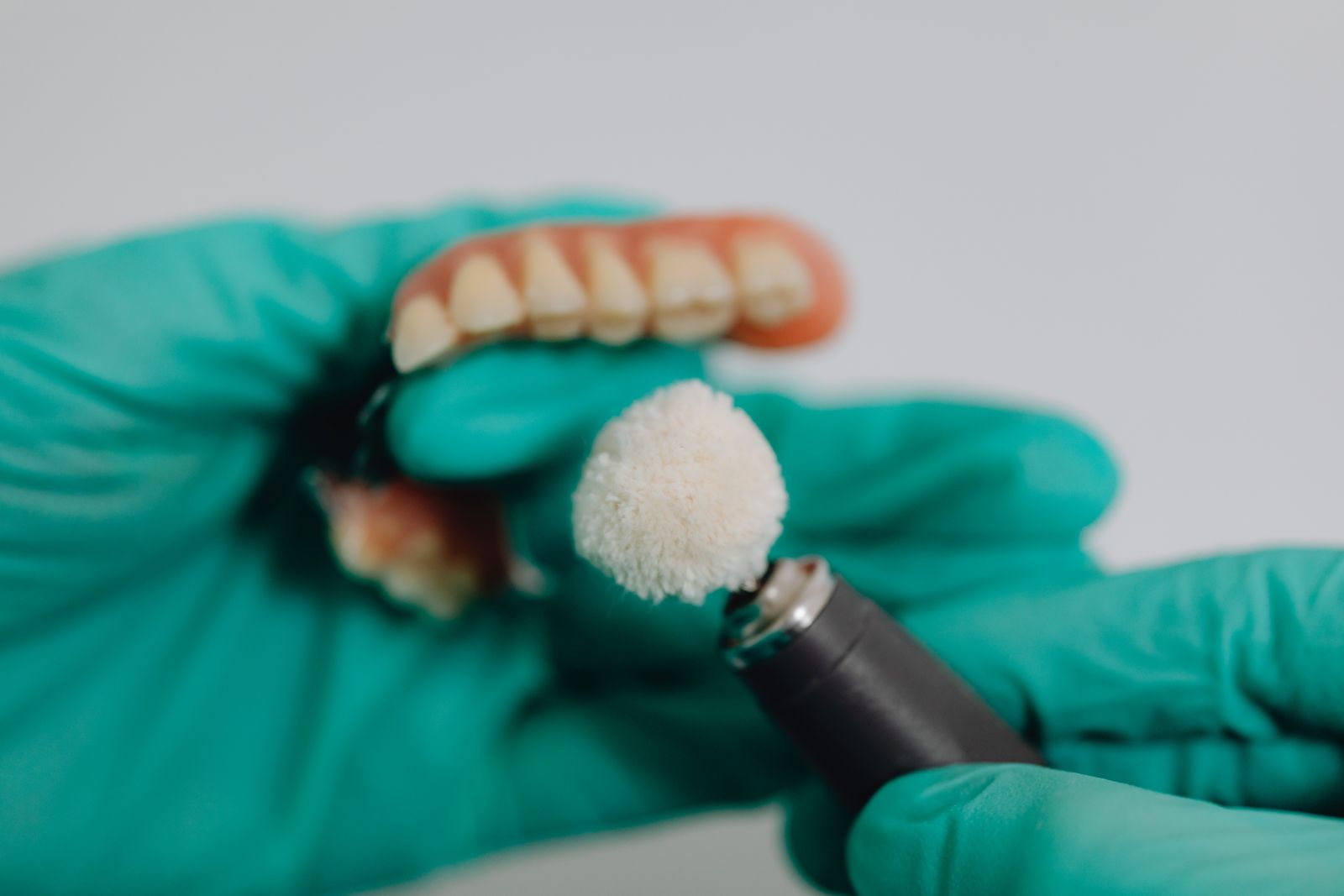Dental Implants Vs Dentures
Dental Implants Vs Dentures
Suffering from missing or damaged teeth can affect much more than just the look of your smile.
Your confidence may take a hit, eating will become more uncomfortable and your overall oral health can seriously suffer. In fact, a missing tooth can begin to impact the teeth around it, causing your whole smile to move out of shape.
This is why replacing missing teeth is such an essential and popular step for patients all across the UK. But what is the best option for replacing missing teeth?
Both dentures and dental implants are great options for replacing missing teeth, but both come with their own pros and cons.
In this article, The Park Practice has provided a short explanation on implants vs dentures as a solution for missing teeth, breaking down the advantages and disadvantages to both in a bid to help our readers reach a decision on which is the best option for them.
What are dental implants?
Dental implants are known as a permanent solution to missing teeth.
They consist of two key components:
-
The implant itself, which is a titanium screw that acts as a replacement tooth root
-
The crown or cap, which is placed on top of the implant and acts as the replacement tooth.
As the titanium implant needs to be fully inserted into your gum to act as the replacement tooth root, dental implant surgery is treated as a serious procedure. The surgery is invasive and takes significant time to heal, but it gives more permanent results that can last for a lifetime.
Due to the invasive nature of dental implant surgery it’s essential for patients to have a strong jaw bone. Your dentist will need to take x-rays of your mouth and jaw to ensure you are a suitable candidate for dental implants before any work begins.

The benefits of dental implants
Dental implants are extremely sturdy and permanent, which is without doubt their biggest and most attractive advantage.
The overall advantages of dental implants include:
-
Will last on average up to 20 years and in some cases for a lifetime
-
Are extremely durable and will act just like a natural tooth
-
Blend in seamlessly with your natural teeth. There's no need to pay special attention to them, remove them for cleaning or anything else that you wouldn’t do with your natual teeth
-
They will improve your oral health and strengthen your bite
-
Help to restructure your jaw bone and maintain the health of your jaw and mouth
-
Look aesthetically pleasing
The drawbacks of dental implants
Despite their many benefits, dental implants do have a few drawbacks that are important to be aware of when trying to choose between dental implants and dentures.
The main drawbacks of dental implants are:
-
The cost: dental implants are one of the most expensive dental treatments on the market today
-
Dental implants aren’t suitable for every patient and could require bone graft procedures if a patient’s jaw bone is not at the required strength level.
Now that you are aware of the disadvantages and advantages of dental implants, let’s take a closer look at dentures.
What are dentures?
Dentures or false teeth are a non-permanent solution to missing teeth.
Dentures are fully-removeable, which can be a nuisance for some patients whereas others enjoy the flexibility this provides.
Dentures tend to come in two types:
-
Full dentures, which are used to replace an entire arch of teeth (and both arches if needed)
-
Partial dentures, which are used to replace a few missing teeth that are spread out across one arch.
Dentures are made to sit on top of your gums and slot into position to replace the missing teeth, giving you a full and natural looking smile whilst they are worn. Dentures should be removed at night to help your gums recover from the daily strain and to give a comfortable night's sleep.

What are the pros of dentures?
Despite not being a permanent solution to replacing missing teeth, dentures still have a lot of advantages and for many are a more suitable option compared to dental implants.
The main advantages of dentures are:
-
Dentures are significantly more affordable than dental implants
-
Dentures do not require invasive surgery, making them more accessible for patients with weak or reduced jaw bones
-
Dentures are made to fit your mouth exactly
-
Any issues with a denture can be fixed quickly by your dentist
-
Dentures will solve the problem of replacing missing teeth without the need of drilling into your gum and mouth
What are the cons of dentures?
Due to dentures being a less permanent solution to replacing missing teeth, many people feel that they do not fully solve the problem.
The main disadvantages of dentures are:
-
They are not a permanent fix and need to be removed and replaced in the mouth daily
-
Wearing dentures when eating can be tricky for some
-
Dentures can affect your speech and the taste of your food
-
Far less stable and also less comfortable than dental implants
-
After a long day of wearing dentures, your gums can feel sore or irritated
-
Less aesthetically pleasing than dental implants as they tend to be more obvious when in the mouth
-
If you choose to have partial dentures fitted, the surrounding natural teeth could still fall victim to tooth decay, misalignment and gum problems.
Whilst dentures are a great solution for older patients who may care less about their appearance and are unable to undergo dental implant surgery due to weakened jaw bones, younger and middle-aged patients tend to avoid dentures in favour of dental implants.
This is not to say that choosing dental implants instead of dentures is better, but understanding the benefits and drawbacks of each should help you match your priorities with the dental solution that suits you best.
Let us help you make a decision!
Choosing dental implant vs dentures to replace your missing teeth are both great options!
For many patients the price is a deciding factor. If this is the case for you, please remember that The Park Practice has a range of helpful finance options to help you spread the cost of your treatment.
Decisions will also be made based on the health of your mouth and jaw bone. In many circumstances patients won’t be able to decide between dental implants and dentures until they’ve come in for an initial consultation and dental inspection.
To take a step towards replacing your missing or damaged teeth with dentures or dental implants, contact The Park Practice today and we will offer our honest, expert advice on which is the best solution for you.


